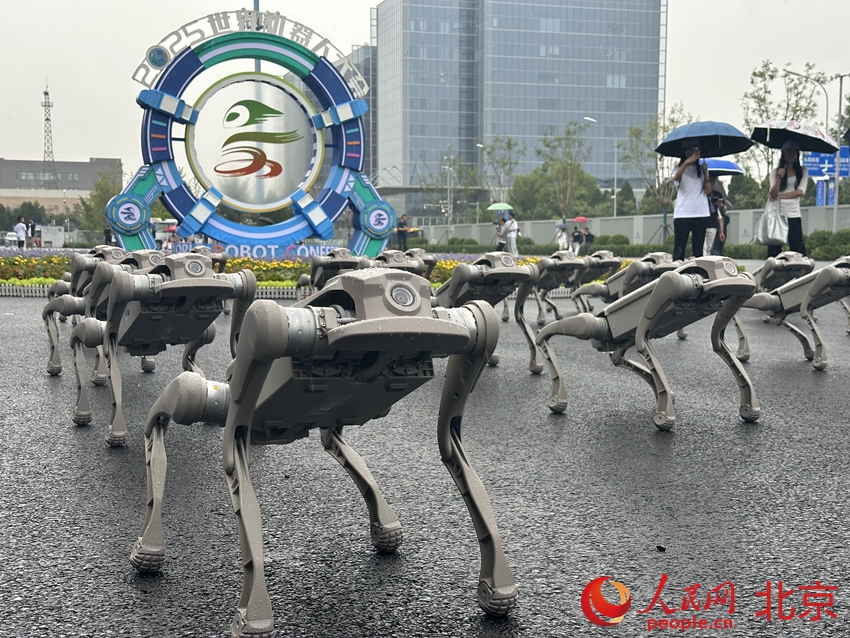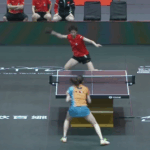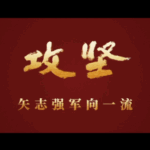On August 8, 2025, the World Robot Conference commenced at the Beijing Economic-Technological Development Area.
The exhibition brought together over 200 leading robotics companies from around the world, showcasing more than 1,500 exhibits, including 100 debut products, across a 50,000-square-meter venue. The event featured three main halls: Hall A (Innovation), Hall B (Application), and Hall C (Technology). Fifty humanoid robot manufacturers, including the Beijing Humanoid Robot Innovation Center, Ubtech, Unitree Robotics, and Songyan Power, presented their latest products and industry solutions. Additionally, innovative displays featured quadruped robots, smart lawn mowers, and other cutting-edge technologies.
The conference competitions consisted of three major events: the Co-Adaptive Robot Challenge, the BCI Brain-Controlled Robot Contest, and the Youth Robot Design Competition. Over 10,000 elite participants from more than 6,000 teams across 10+ countries competed on-site. The event also hosted 31 forums and activities covering topics such as robotics innovation, international collaboration, technological breakthroughs, standards and testing, investment, academic research, and talent development.
Beyond the conference, visitors experienced new innovations at robot 4S stores and robot-themed restaurants. During the world’s first Robot Consumer Festival, the Beijing Economic-Technological Development Area issued special consumption vouchers. Within just three days, by August 4, voucher redemptions exceeded 2 million yuan, driving sales of over 26 million yuan, demonstrating strong consumer engagement.
World Robot Conference
The **World Robot Conference (WRC)** is an annual international event held in Beijing, China, since 2015, showcasing advancements in robotics and artificial intelligence. It features exhibitions, competitions, and forums, bringing together experts, companies, and enthusiasts to promote innovation and collaboration in robotics. The conference highlights China’s growing role in robotics and aims to drive global technological development in the field.
Beijing Economic-Technological Development Area
The Beijing Economic-Technological Development Area (BDA), also known as Yizhuang, was established in 1992 as a state-level development zone to promote high-tech industries and foreign investment. Located in southeastern Beijing, it has grown into a major hub for advanced manufacturing, biotechnology, and information technology, hosting numerous multinational corporations and research centers. The BDA plays a key role in Beijing’s economic modernization and innovation-driven development strategies.
Beijing Humanoid Robot Innovation Center
The Beijing Humanoid Robot Innovation Center is a cutting-edge research and development hub focused on advancing humanoid robotics technology in China. Established to drive innovation in artificial intelligence, robotics, and automation, it supports China’s ambitions in high-tech industries. While its exact founding date is unclear, it reflects Beijing’s growing emphasis on becoming a global leader in robotics and smart manufacturing.
Ubtech
Ubtech is a Chinese robotics and artificial intelligence company founded in 2012, known for developing consumer and educational robots, including humanoid and STEM-focused models. While not a traditional cultural site, it represents modern technological innovation in China, contributing to advancements in AI and robotics globally. The company has gained recognition for products like Alpha robots and collaborations in smart home and service robotics.
Unitree Robotics
Unitree Robotics is a Chinese company specializing in the development and production of advanced quadruped robots, known for their agility and affordability. Founded in 2017, the company has gained recognition for innovations like the Laikago, Aliengo, and Go1 robots, which are used in research, industry, and entertainment. Unitree aims to make robotic technology more accessible while pushing the boundaries of mobility and AI integration.
Songyan Power
Songyan Power refers to the Songyu (Songshan-Yu Mountain) area in Taiwan, historically known for its hydroelectric power plants built during the Japanese colonial era (1895–1945). The Wujie Dam and power station, constructed in the 1920s, were key infrastructure projects that supplied electricity to Taiwan’s early industrialization. Today, the area is recognized for its historical significance and scenic landscapes.
Co-Adaptive Robot Challenge
The **Co-Adaptive Robot Challenge** is an innovative competition or research initiative focused on advancing human-robot collaboration, where participants develop robots that can adapt to human behavior in real time. Emerging from advancements in AI and robotics, the challenge explores applications in assistive technology, manufacturing, and healthcare. It reflects the growing emphasis on creating seamless, intuitive interactions between humans and machines.
BCI Brain-Controlled Robot Contest
The BCI Brain-Controlled Robot Contest is an innovative competition where participants control robots using brain-computer interface (BCI) technology, showcasing advancements in neuroscience and robotics. Originating from research in neural engineering, the contest promotes the development of non-invasive BCI systems for practical applications. It highlights the potential of mind-controlled technology in fields like assistive devices, gaming, and automation.





